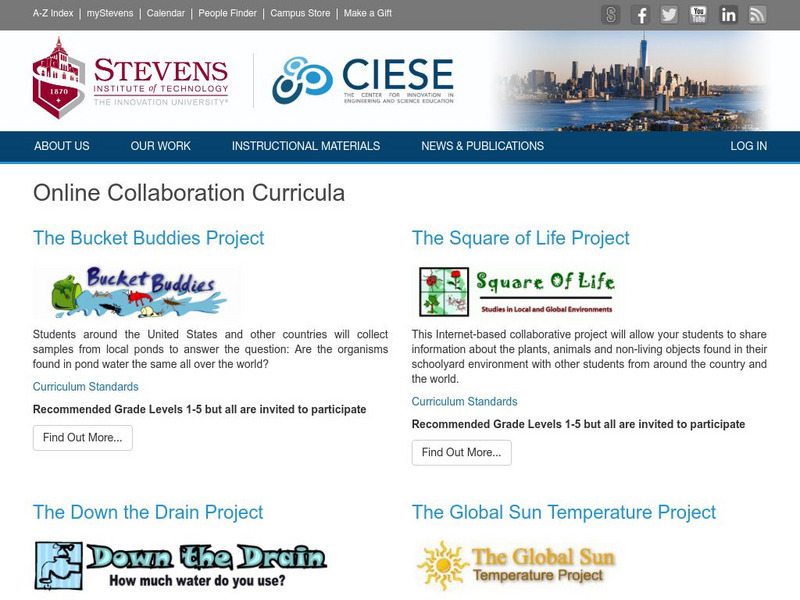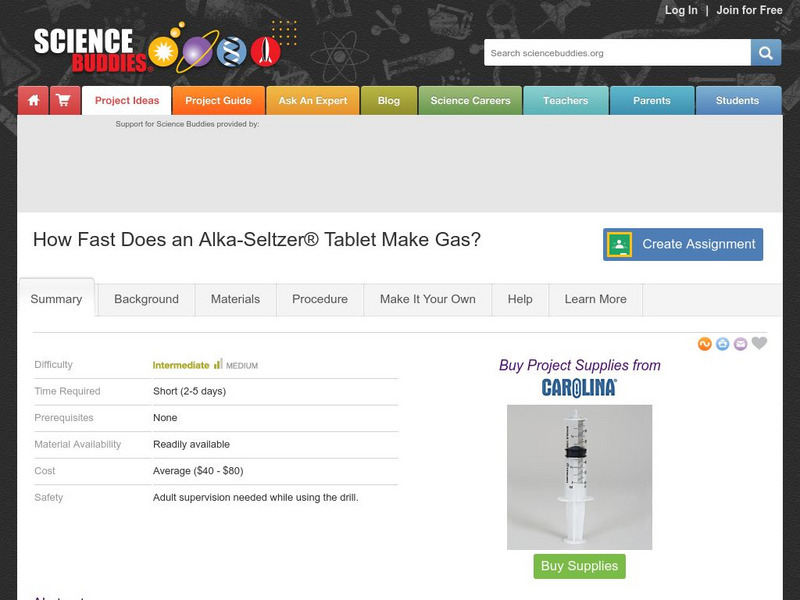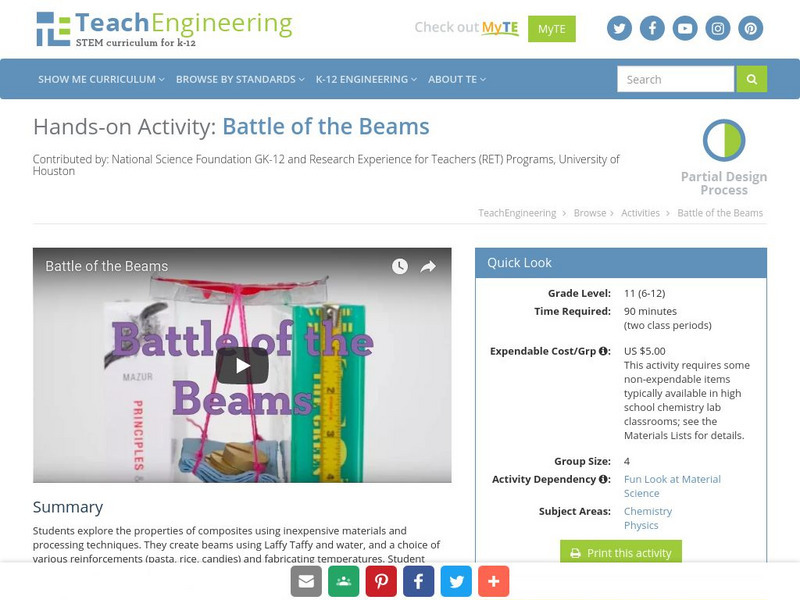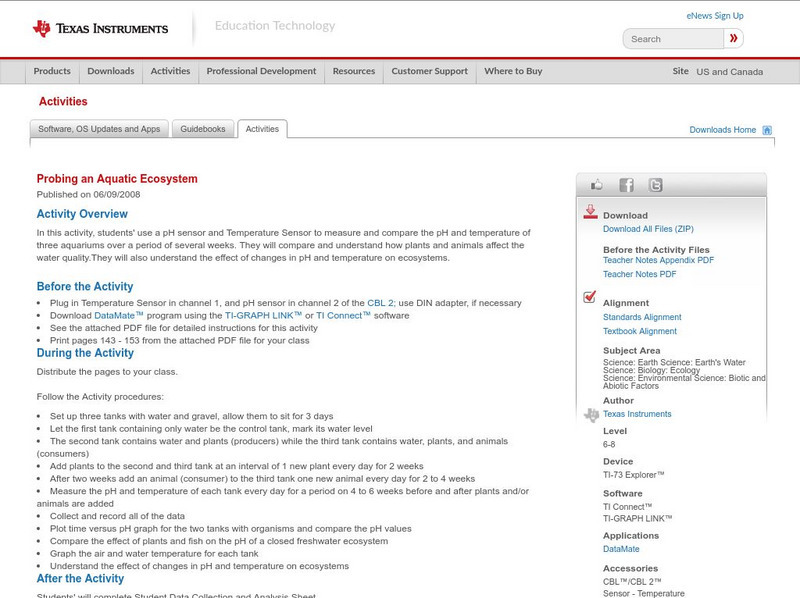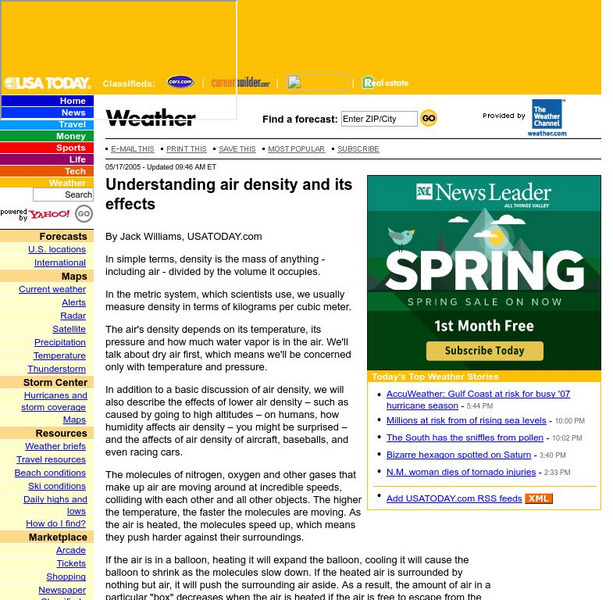Hi, what do you want to do?
Center for Innovation in Engineering and Science Education, Stevens Institute of Technology
Ciese: Collaborative Projects
Using a variety of science topics, these projects link your class with classes around the world in data collection and analysis. There are projects recommended for all grade levels. Begin dates and end dates are listed to help in...
Concord Consortium
Concord Consortium: Stem Resources: Evaporative Cooler
Build an air conditioner in this activity using a washcloth, coat hanger, aluminum pan, and three-speed fan. After constructing the air, students will measure the air, water, and wet cloth temperature as well as measuring the humidity....
Science Buddies
Science Buddies: How Fast Does an Alka Seltzer Tablet Make Gas?
This is a straightforward, fun project to measure the rate of the chemical reaction that occurs when Alka-Seltzer tablets are plopped into water. You'll track the volume of carbon dioxide gas produced at regular intervals after the...
TeachEngineering
Teach Engineering: Battle of the Beams
Students explore the properties of composites using inexpensive materials and processing techniques. They create beams using Laffy Taffy and water, and a choice of various reinforcements (pasta, rice, candies) and fabricating...
Texas Instruments
Texas Instruments: Probing an Aquatic Ecosystem
In this activity, students' use a pH sensor and Temperature Sensor to measure and compare the pH and temperature of three aquariums over a period of several weeks. They will compare and understand how plants and animals affect the water...
Texas Instruments
Texas Instruments: Keep It Bottled Up: Linear Rates of Pressure Increase
When two or more chemicals react, other substances such as gases may be produced. The rate at which the reaction takes place can be affected by a number of different factors including temperature. In this activity, you will see how...
Texas Instruments
Texas Instruments: Dissolved Oxygen
Students use the Dissolved Oxygen Probe to measure the concentration of dissolved oxygen in water from streams and rivers. They correlate the availability of dissolved oxygen to temperature, pressure, and salinity.
Texas Instruments
Texas Instruments: Designing Hot and Cold Packs
in this activity, students calculate the molar enthalpy of dissolving for three ionic solids, and use this information to design a cold pack. In this experiment they measure the heat changes which occur from various salts dissolving in...
USA Today
Usa Today: Understanding Air Density and Its Effects
In simple terms, density is the mass of anything - including air - divided by the volume it occupies. In the metric system, which scientists use, we usually measure density in terms of kilograms per cubic meter. The air's density depends...
Curated OER
Etc: Maps Etc: Climate and Watersheds of the United States, 1868
A map from 1868 of the United States showing physical features, mean annual temperatures, rainfall distribution, watersheds, and principal products in the area. The average annual temperatures are shown by isotherms, with temperatures...





